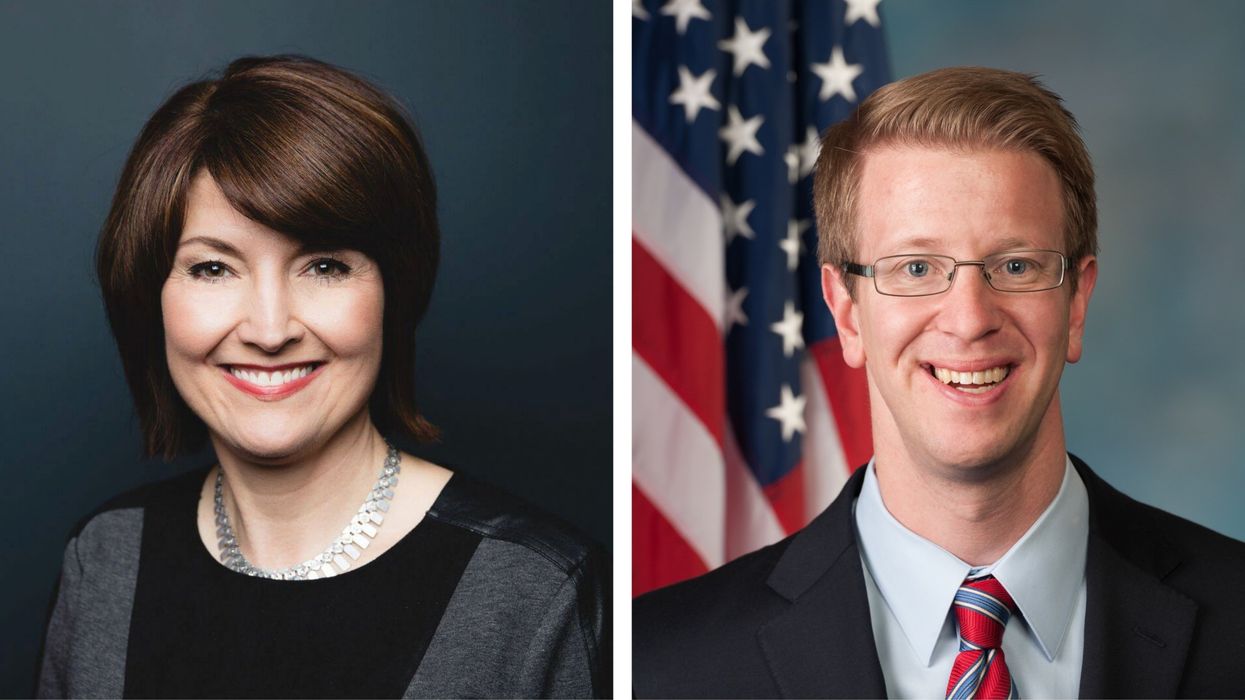Fitch is a former CEO of the Congressional Management Foundation and a former Capitol Hill staffer.
The college basketball world got a jolt to its system this month when beloved University of Virginia coach Tony Bennett announced his retirement. A big loss for the Cavaliers, and even a loss for the sport. When great leaders or players leave an industry, it can cause significant harm for their organization and the people they serve.
Similarly, at the end of the 118th Congress, the House and Senate will lose a greater number of “superstar players” than at almost any other time in recent memory. Most of these public servants are not household names, yet that is the definition of a “workhorse” in Congress (in contrast to a “show horse”). They show up, put their heads together and hammer out bill after bill to benefit the American people.
While many of the retiring lawmakers are laudable, here are four who have made outstanding contributions to their constituents and the nation.
Rep. Derek Kilmer (D-Wash.) has served in the House for 10 years, after 10 years in the Washington Legislature. In 2019 Kilmer was tapped to lead a new ad-hoc panel, the Select Committee on the Modernization of Congress. After its first year, The Washington Post called it “the most important committee you’ve never heard of.” The evenly split panel adopted more than 200 recommendations to improve Congress as an institution, and always with an eye towards improving services to constituents.
In every facet of operation, the committee broke the rules and pulled down partisan barriers. Instead of using the traditional hearing room dais to sit above their witnesses and audience, they all sat around a table together. Instead of two partisan staffs, they had one bipartisan staff. At hearings they didn’t divide into two camps, but instead sat next to each other, Democrat next to Republican. Collectively, the recommendations will strengthen Congress, allow constituents to have a greater voice in government and lead to better service to (and representation of) the American people.
Rep. Patrick McHenry (R-N.C.) arrived in Congress in 2005, at age 29, as a bit of a partisan firebrand and the youngest member of Congress. As he grew into the job, and rose in GOP leadership ranks, time seemed to soften his approach. In 2020 he did not join his fellow Republicans in voting against the certification of Joe Biden’s election.
And in 2023 he assumed the important role of chairman of the Financial Services Committee. While holding ideological views, McHenry was credited with shepherding bipartisan legislation through the committee, often to the displeasure of more partisan elements of his party. His cooling demeanor may be why he was selected as speaker pro tempore when Speaker Kevin McCarthy (R-Calif.) was forced out of his position in 2023.
One columnist noted of McHenry’s career, “In like a thespian, out like a Madisonian.” This may be why the Congressional Management Foundation selected McHenry for a Lifetime Achievement Democracy Award in 2024.
The retirement of Rep. Cathy McMorris Rodgers (R-Wash.) is another great loss to Congress. A conservative on many issues, she also built bipartisan relationships as a member of the moderate Republican Main Street Caucus. McMorris Rodgers also pushed innovation in the institution of Congress. She famously quipped that Congress is a “19th century institution using 20th century technology to respond to 21st century problems.”
She broke glass ceilings in her rise to power, becoming the first woman to chair the powerful Energy and Commerce Committee. She also holds a distinction no other person can claim: While in the House of Representatives she birthed three children!
Throughout her five decades in public service, Sen. Debbie Stabenow (D-Mich.) has been a champion of manufacturing and agriculture in Michigan. “We don’t have an economy unless somebody makes something and somebody grows something,” she said. In the Senate she helped write the Affordable Care Act and passed major reforms to bring down the cost of health insurance and prescription drugs and to require health insurance plans to cover maternity care.
She was the first woman to chair a county board of commissioners in Michigan in the 1970s, first woman to preside over the Michigan House of Representatives, and first woman elected to the Senate from Michigan in 2001.
Any team that loses star players is much less likely to succeed in the next season. For Congress, and the country, 2025 will likely be a rebuilding year for democracy.




















Trump & Hegseth gave Mark Kelly a huge 2028 gift